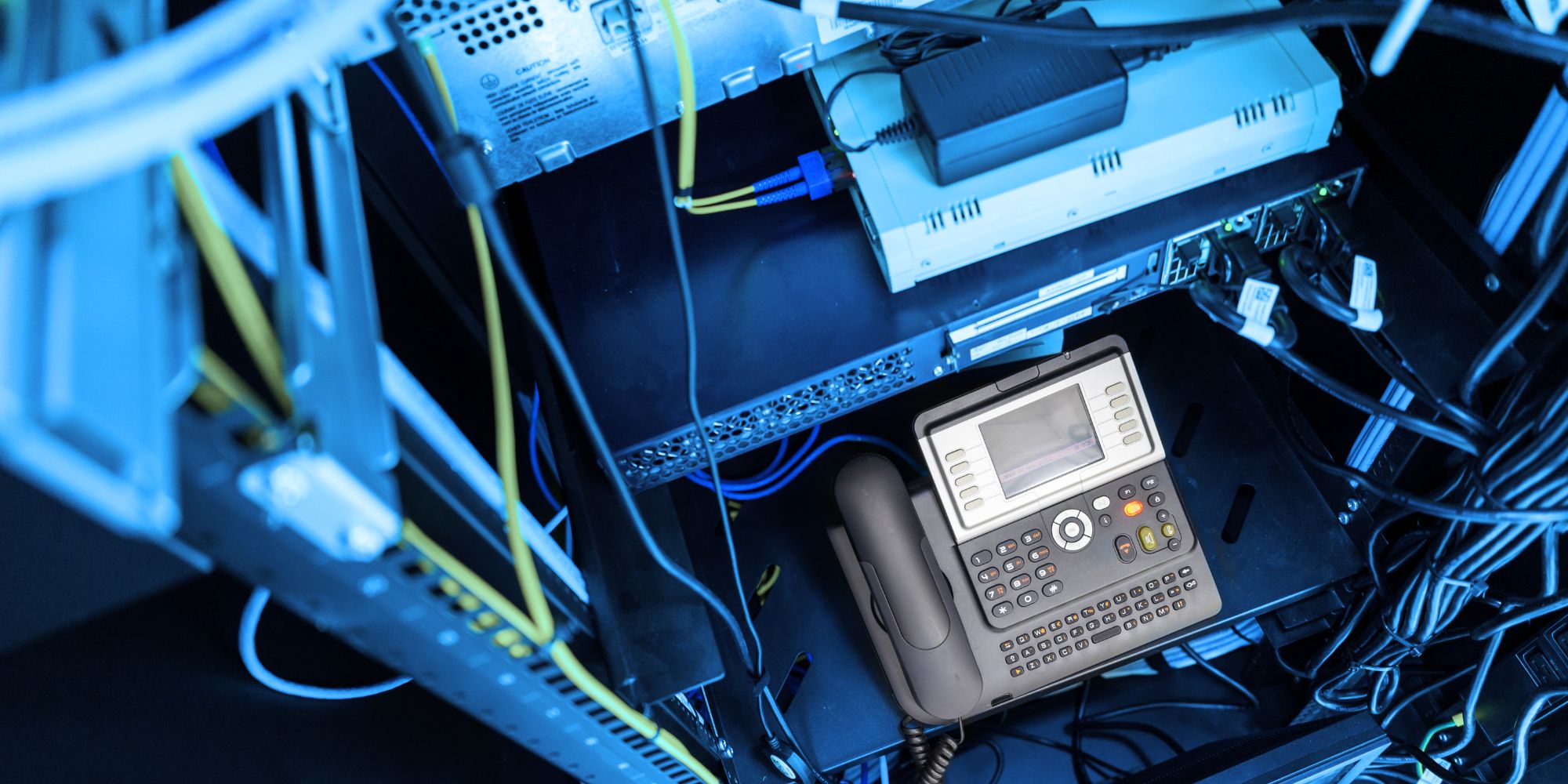Tips for securing your VoIP phone
Tips for securing your VoIP phone

A VoIP phone, or Voice over IP (VoIP), offers businesses unprecedented benefits: lower costs, flexibility and advanced features that traditional telephony cannot offer. But as with other digital technologies, VoIP also comes with security risks.
Insecure VoIP systems can be a gateway for cyber attacks, putting sensitive business information at risk. How do you prevent this? In this blog, we discuss the risks of insecure VoIP systems, essential security measures and practical tips to protect your business communications.
The risks of insecure VoIP phones
Switching to a VoIP phone means that your business communication is over the internet. This carries specific risks:
- Eavesdropping and data leaks. With an insecure VoIP system, cybercriminals can intercept calls and gain access to confidential information, such as customer data or business strategies.
- Fraud and unauthorised use. Hacker attacks on VoIP systems, such as ‘VoIP Phishing’ (also known as Vishing), can lead to unauthorised use of your phone line. This often results in sky-high phone charges.
- DDoS attacks (Distributed Denial of Service). A DDoS attack involves flooding your VoIP system with fake traffic, causing service to become slow or even shut down completely. This can lead to serious disruptions to your business communications.
- Ransomware and malware. Hackers can inject malicious software through vulnerabilities in your VoIP system, blocking your systems or encrypting sensitive data until a ransom is paid.
Important steps to secure your VoIP telephony
Fortunately, there are several measures you can take to protect your VoIP systems from cyber threats. Here are some of the most important ones:
1. Use encryption
Encryption is one of the most powerful tools to secure your communications. It encrypts your calls and data, preventing hackers from intercepting or reading them. Make sure your VoIP provider supports encryption, such as Transport Layer Security (TLS) and Secure Real-time Transport Protocol (SRTP), as Voiped Telecom does.
2. Install a firewall specifically for VoIP
A traditional firewall often does not provide enough protection for VoIP systems. Use a Session Border Controller (SBC) or a specialised VoIP firewall specifically designed to monitor VoIP traffic and block suspicious activity.
3. Limit access to the system
Limit access to your VoIP phone to authorised users only. You can do this by using strong passwords and enforcing regular password changes. Also consider multi-factor authentication (MFA) for extra security.
4. Update software and firmware regularly
Hackers often exploit vulnerabilities in outdated software. Make sure all VoIP software and devices, such as IP phones and routers, are up-to-date. Work with a reliable provider that offers regular updates and security patches.
5. Monitor network traffic
By continuously monitoring network traffic, you can detect suspicious activity early. Intrusion detection tools (IDS) can help you quickly spot and address unauthorised access or suspicious activity.
Tips for businesses to prevent cyber attacks
Here are specific tips to protect your business and VoIP telephony:
1. Choose a trusted VoIP provider such as Voiped
Work with a provider that values security, such as Voiped Telecom. Ask about our security measures we implement, such as encryption, monitoring and proactive protection against DDoS attacks.
2. Train your staff
Employees are often the weakest link in security. Make sure your team is aware of common VoIP security risks, such as phishing attempts and suspicious links. By creating awareness, you will prevent human errors that can lead to cyber attacks.
3. Set user rights for your VoIP phone
Not all employees need access to all features of your VoIP system. Limit access to sensitive functions, such as system settings, to only those who really need it.
4. Make regular backups
In case something does go wrong, such as a ransomware attack, it is crucial that you have a recent backup of your data. Store these backups in a secure environment that is not directly connected to your network.
5. Perform regular audits
Schedule periodic security audits to identify and address weaknesses in your system. This will help you to always stay one step ahead of potential threats.
Security is an ongoing process
Securing VoIP systems is not a one-off action, but a continuous process. However, with the right measures and awareness, you can significantly reduce the risk of attacks. Make sure you partner with a reliable VoIP provider, invest in advanced security technologies and train your staff to recognise cyber threats.
Want to know more about securing your VoIP system? Or are you looking for a reliable provider that prioritises security? Contact us and find out how we can help you protect your business communications.
Nov 27, 2024
Recent Posts
- What is VoIP? How can VoIP Benefit Businesses
- Dedicated Fiber: The advantages of selecting a Carrier-Neutral Connectivity Provider in the Netherlands
- What is Dedicated Internet access? Dedicated Internet Business Guide
- Voiped Telecom: Your Partner in Connectivity Transformation
- Telecom Events not to be missed in 2025
Stay Updated!
Join Us